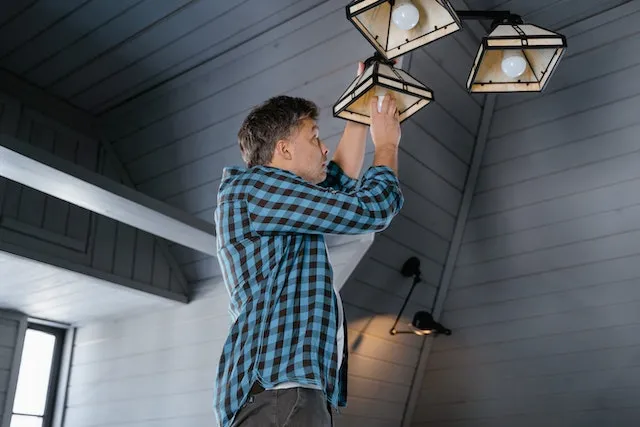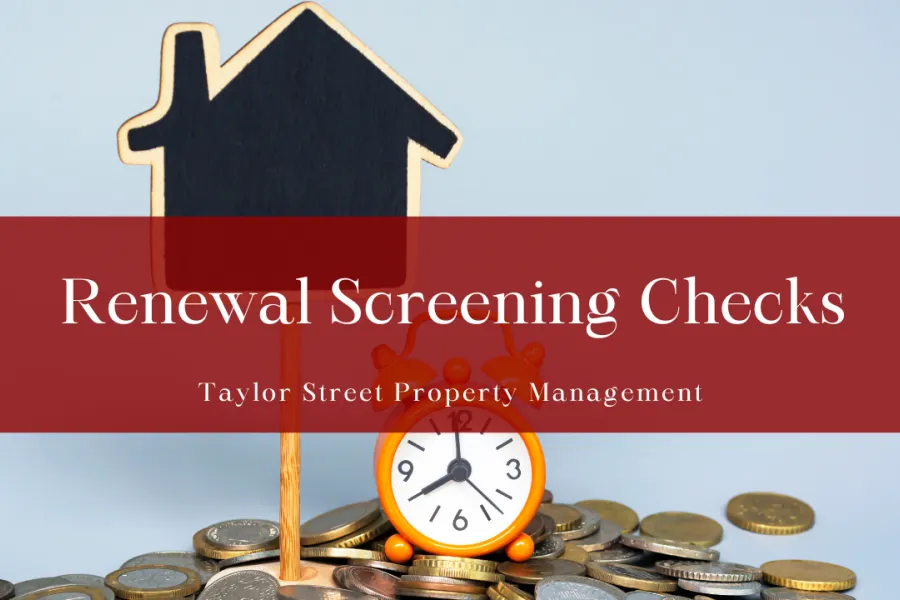As a landlord, one of your responsibilities is to ensure that your investment property is occupied by tenants who pay their rent on time and take good care of the rental unit.
Retaining your tenants who have been responsible, made timely rent payments and followed the terms of the lease is a wise idea. However, landlords shouldn’t rush into lease renewals without performing the necessary renewal screening checks.
Lease renewal screening checks can help save you from potential issues with your tenants and minimize any property damage and risks associated with renting your property to the same individuals. Lease renewal screenings are a great way to determine if your tenants still meet your needs as a landlord.
Below are a couple of reasons why you should perform lease renewal screening checks:
Saving Money
Conducting a renewal screening check enables you to identify any challenges or problems that your tenants may be causing. It’s essential to detect these issues early on and prevent them from escalating before you re-sign a lease agreement. This will help prevent more severe and costly problems in the future.
Gain Peace of Mind
Lease renewal checks are typically a lot quicker and easier than initial screenings. Performing renewal screening can provide peace of mind from knowing you’ll still be renting to qualified and responsible residents.
How to Make Lease Renewal Screening an Easy Process
As a rental property owner, you want to complete the screening process as efficiently as possible so that tenants can sign their new lease and you can continue collecting rent payments.
Here are a few things to keep in mind to make the renewal screening process easy and smooth:

Know What to Check
There are specific things that landlords should check when performing a renewal screening check. Some of the most important factors to look into are detailed below.
The Tenant’s Payment History
One of the most critical factors to consider when renewing a lease is the tenant’s payment history. A lease renewal screening check can provide information on whether the tenant has paid their rent on time and in full in the past and remind you of any late payments or bounced checks.
The Renter’s Criminal History
Another reason to perform a lease renewal screening check is to review the tenants’ updated criminal records. Many things can happen during a lease period, and even though a tenant’s criminal record was clean when they first signed the lease, it may not be anymore.
When you check a tenant’s criminal record, you can learn whether they have committed serious or violent crimes. By reviewing their most recent criminal records, you can ensure the safety of your property, other tenants, and neighbors and minimize liability risks.
Maintenance History
A lease renewal screening check can also provide information related to property damage and maintenance that occurred during their previous lease. This includes a list of any repairs or damages to the property the tenant was responsible for.
By assessing the tenant’s maintenance history, you can decide whether they are a reliable tenant who takes good care of the rental.

Employment and Income Verification
Another vital factor to consider when renewing a lease is the tenant’s employment and income. A lease renewal screening check can offer information on the tenant’s current employment status and income, which can help you determine whether or not they can afford to make regular rent payments.
Compliance with Lease Agreement Terms
It is also essential to check whether your tenant has complied with the terms of the lease agreement. This includes checking for any lease violations, such as unauthorized pets, subletting without permission, or smoking on the property if the rental is a designated non-smoking area. If the tenant has violated the lease agreement, it may impact your decision to renew their lease.
Comply with the Fair Housing Act
All tenants are protected against discrimination through the Fair Housing Act (FHA). When performing a renewal screening, ensure your process complies with the law.
Add Information on Renewal Screening Checks to Your Lease Agreements
To manage tenants’ expectations, it is crucial to inform them early on that a renewal screening will be performed if they decide to renew their lease after the term ends.
Indicate this in your lease agreement and include details on what information you intend to check and if any fees will be collected to cover the screening cost.

Conclusion
Conducting lease renewal tenant screening can help you make an informed decision about whether to renew a tenant’s lease or not. By screening for payment history, criminal history, maintenance history, employment and income verification, and compliance with the lease agreement, you can ensure that you’re retaining responsible and qualified tenants.
If you’re not sure how to perform renewal screening checks yourself, it’s best to hire a professional property manager. Contact Taylor Street Property Management if you have any questions!


